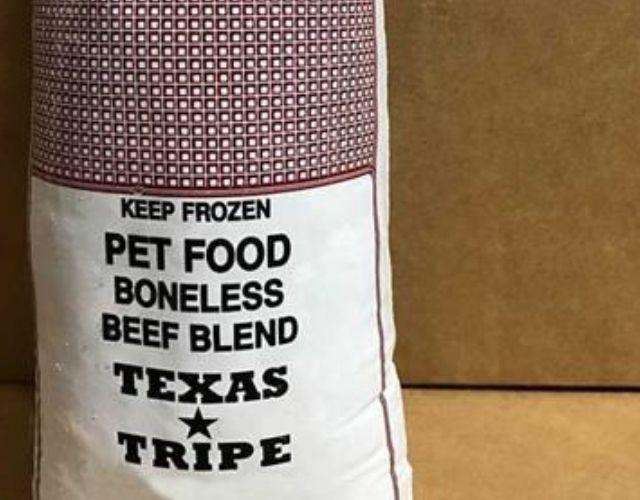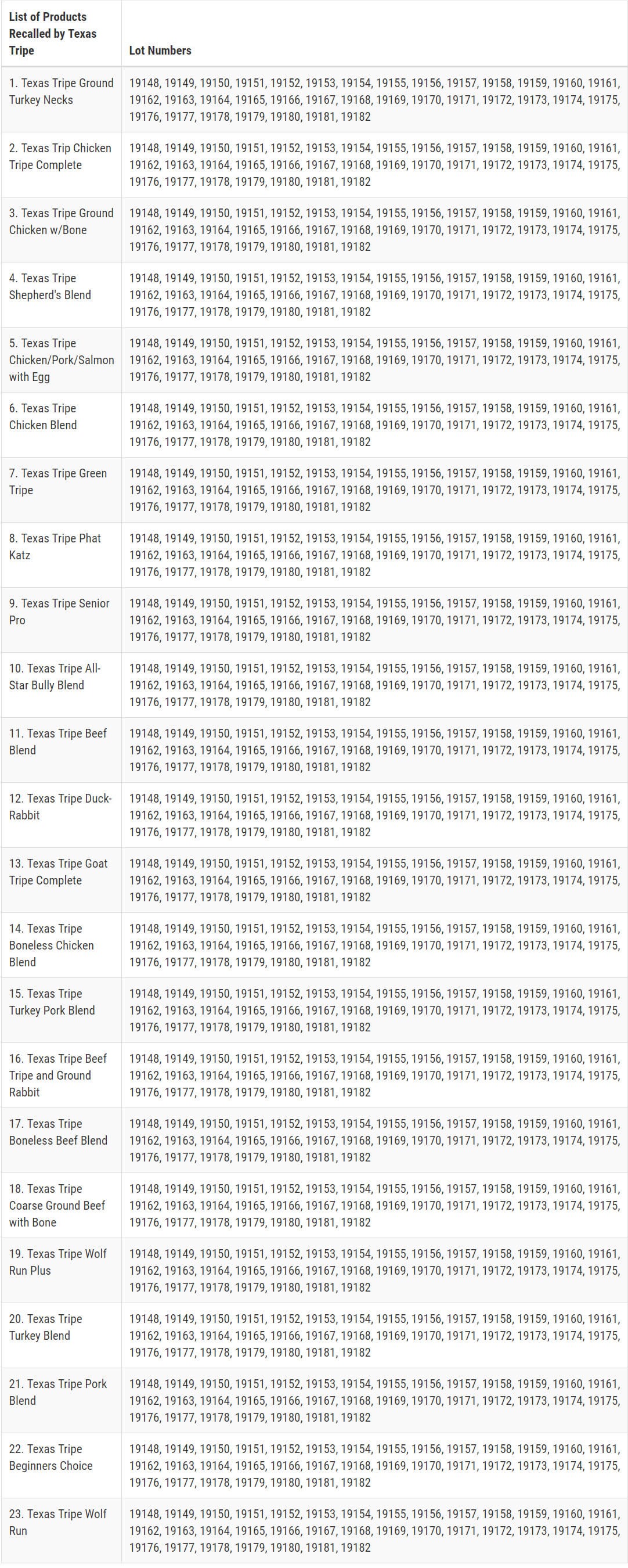The FDA just released a troubling announcement warning pet owners not to feed certain lots of the Texas Tripe raw pet food. After testing positive for Salmonella and Listeria, the FDA is concerned for the potential threat to pets and their owners.
Which food is being recalled?
The Texas Tripe brand sells a line of raw and frozen food products that are sold in 20 and 40 pound cases. Each of these cases holds individual plastic pouches containing the food.
“Because these products are sold and stored frozen, the FDA is concerned that people may still have them in their possession.”

While the lot codes of the recalled items have been released, the lot codes are only printed on the cases that hold the individually wrapped food. This means that if the purchaser has discarded the case that the food was purchased in, there is no way for them to know the products lot code. If there is no way for you to confirm the lot code of the food you purchased, you are advised not to offer the food to your pet.
Below is a list of the recalled lot codes for each of the Texas Stripe products:

Why should you be concerned?
It’s not often that our pet’s diet can affect our physical health, but when dealing with Salmonella and Listeria, we are at risk as well.
Salmonella and Listeria are the pathogens that we are always warned about when learning how to properly handle food. Exposure to the bacteria can result in unfavorable GI symptoms, and potentially serious illness. This can not only affect our pets with consumption of this product, but us as well.
If our pets consume these pathogens, they can start to shed them in their wastes, and possibly pass them on to their humans without appearing to be sick. Passing the bacteria along can result in contamination to other people, surfaces, and objects.
What is Salmonella?
Salmonella is a bacterium that is known to cause serious gastrointestinal illness, as well as possible death in the immune compromised. While many recover on their own from this illness, some have had to be hospitalized due to serious dehydration.
When our pets are exposed to the bacteria, the same systems in their body are affected. This means you may see diarrhea, fever, vomiting, and lethargy in any pet that has acquired salmonella.
What is Listeria?
Listeria is a bacterium that can cause serious illness, and is of extra concern to those who are immune compromised or pregnant. Listeria can cause a wide variety of symptoms, so this pathogen is less straight forward in terms of diagnosis.
In humans and animals, listeria will cause different symptoms depending on which part of the body is affected. These symptoms include: headache, muscle soreness, fever, disorientation, flu symptoms, and convulsions.
Listeria is of great concern to those who are pregnant, since exposure can lead to miscarriage, premature delivery, or serious illness to the newborn.
What should you do if your pet eats this food?
If you have any of the recalled food in your possession, you’re strongly advised to stop feeding it to your pet immediately, and throw it away in a secure container where other animals cannot reach it. Consumers are urged to clean any food prep surfaces, the freezer in which it was stored, as well as disinfecting any of your pets belongings (bed, toys, food bowls, etc.) Make sure to thoroughly wash your hands after handling this product or any surfaces that could have been exposed. These pathogens are risky, so taking every precaution is necessary.
Keep in mind that if you have already removed the individually wrapped food packages from the case it was purchased in, there is no way for you to know the lot code. The safest option is to act as if the food is contaminated, and throw it away.
If you have fed your pet any of the recalled food, it’s best to contact your veterinarian and see what they recommended as far as care and testing. It’s best to be safe when dealing with pathogens that can seriously affect you and your pet’s well-being.
The FDA would like to keep track of any contaminated products purchased, so if you have any of the recalled food in your home, please visit https://www.fda.gov/petfoodcomplaints.
H/T: http://dogfoodadvisor.com
 Toledo, United States.
Toledo, United States.